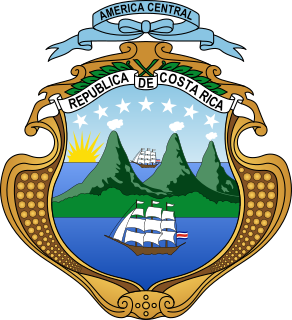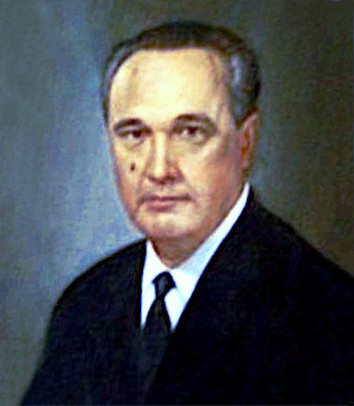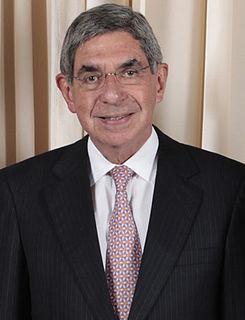| |||||||||||||||||||||||||
| Turnout | 64% | ||||||||||||||||||||||||
| |||||||||||||||||||||||||
In green provinces won by Orlich, in blue Echandi | |||||||||||||||||||||||||
| |||||||||||||||||||||||||
 |
|---|
| This article is part of a series on the politics and government of Costa Rica |
Legislature |
|
General elections were held in Costa Rica on 2 February 1958. [1] Mario Echandi Jiménez of the National Union Party won the presidential election, whilst the National Liberation Party won the parliamentary election. Voter turnout was 64.7%. [2]

Costa Rica, officially the Republic of Costa Rica, is a country in Central America, bordered by Nicaragua to the north, the Caribbean Sea to the northeast, Panama to the southeast, the Pacific Ocean to the southwest, and Ecuador to the south of Cocos Island. It has a population of around 5 million in a land area of 51,060 square kilometers. An estimated 333,980 people live in the capital and largest city, San José with around 2 million people in the surrounding metropolitan area.

Mario José Echandi Jiménez was the 33rd President of Costa Rica, serving from 1958 to 1962.

The National Union Party is the name of several liberal conservative parties in Costa Rica, generally located right-to-center in the political spectrum.
Contents
Echandi had become leader of the Opposition as he was elected congressman in 1953. During the tense invasion of 1955 when former president Rafael Angel Calderon's supporters and their international allies tried to invade Costa Rica’s territory and were successfully repelled by José Figueres’ government, Echandi was accused of been Calderonista and been offered an office as minister from Calderón. [3] Echandi denied it but was put under investigation by the Legislative Assembly. [3] The opposition, encompassed by both Echandi’s party National Union and Calderón’s Independent Republican left the Assembly in protest. [3] Still Echandi was acquitted and the old loyalties before the war were starting to switch. Echandi as candidate from National Union promised to allow Calderón and family (then exiled in Mexico) to return to Costa Rica and give a general amnesty for all of Calderón’s supporters. This gained him the support of the Calderonism, still a powerful political base. [3]
The Leader of the Opposition is a title traditionally held by the leader of the largest party not in government in a Westminster System of parliamentary government. The Leader of the Opposition is seen as the alternative Prime Minister, Premier or Chief Minister to the incumbent and heads a rival alternative government known as the Shadow Cabinet or Opposition Front Bench.

The President of Costa Rica is the head of state and head of government of Costa Rica. The President is currently elected in direct elections for a period of four years, which is not immediately renewable. Two Vice presidents are elected in the same ticket with the president. The president appoints the Council of Ministers. Due to the abolition of the military of Costa Rica in 1948, the president is not a Commander-in-chief, unlike the norm in most other countries, although the Constitution does describe him as commander in chief of the civil defense public forces.

The Legislative Assembly is the unicameral legislative branch of the government of Costa Rica. The national congress building is located in the city capital, San José, specifically in El Carmen District in San José Canton.
But, whilst PLN’s opposition was closing lines, PLN was splitting. After a primary election that was won by Francisco José Orlich (one of PLN’s founders and one of the leaders of the 1948 Revolution) his opponent Jorge Rossi left the party and founded a new one called Independent Party. [3] As expected, Rossi’s departure and his new party caused an spoiler effect dividing the Social Democratic vote and Echandi won the election with the support of Calderonists. [3]

Jorge Rossi Chavarría was a Costa Rican politician. He was a lawyer, businessman. He co-founded the National Liberation Party (PLN) with Jose Figueres. He was Vice-President of the Republic of Costa Rica from 1970 to 1974 and representative from 1986 to 1990.
The spoiler effect is the effect of vote splitting between candidates or ballot questions who often have similar ideologies. One spoiler candidate's presence in the election draws votes from a major candidate with similar politics thereby causing a strong opponent of both or several to win. The minor candidate causing this effect is referred to as a spoiler. However, short of any electoral fraud, this presents no grounds for a legal challenge.
Echandi did fulfill his promise and allowed Calderón and family to return and passed a general amnesty for all factions. [3]
















